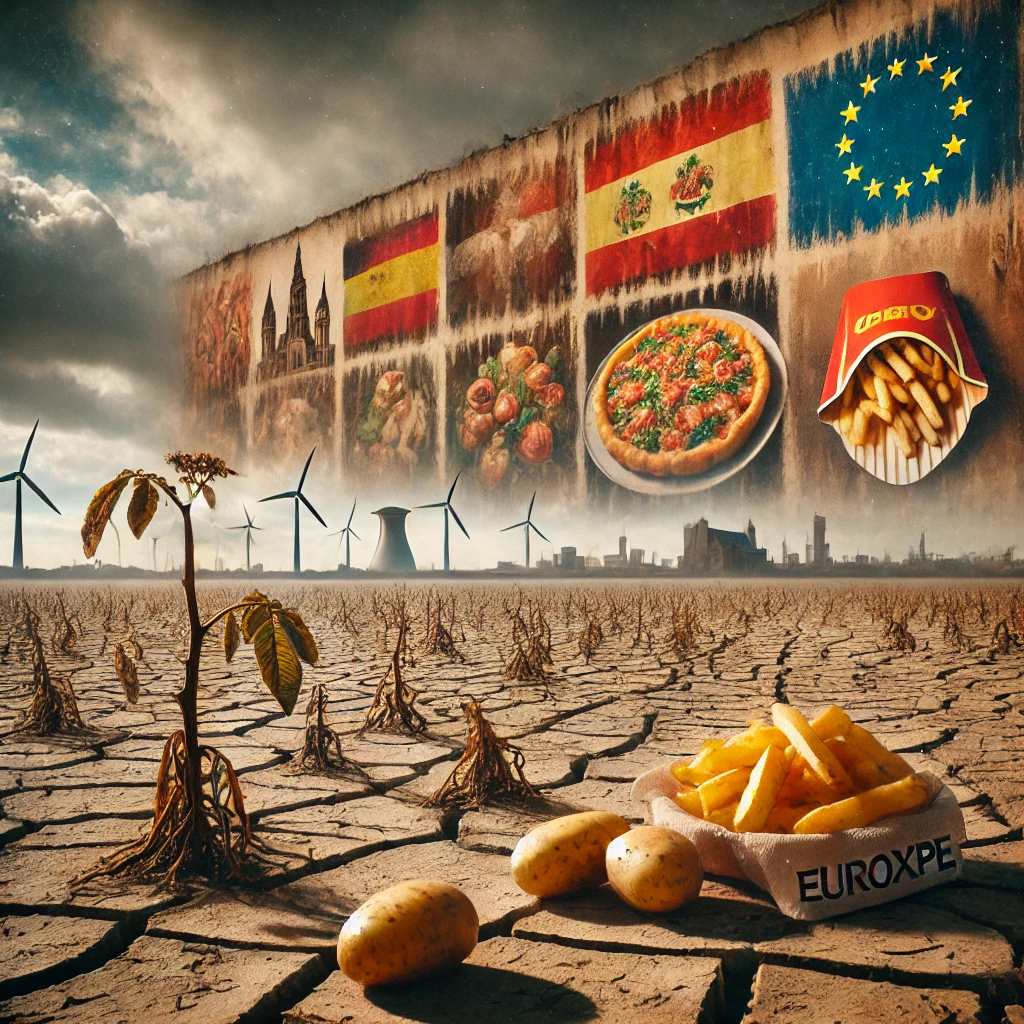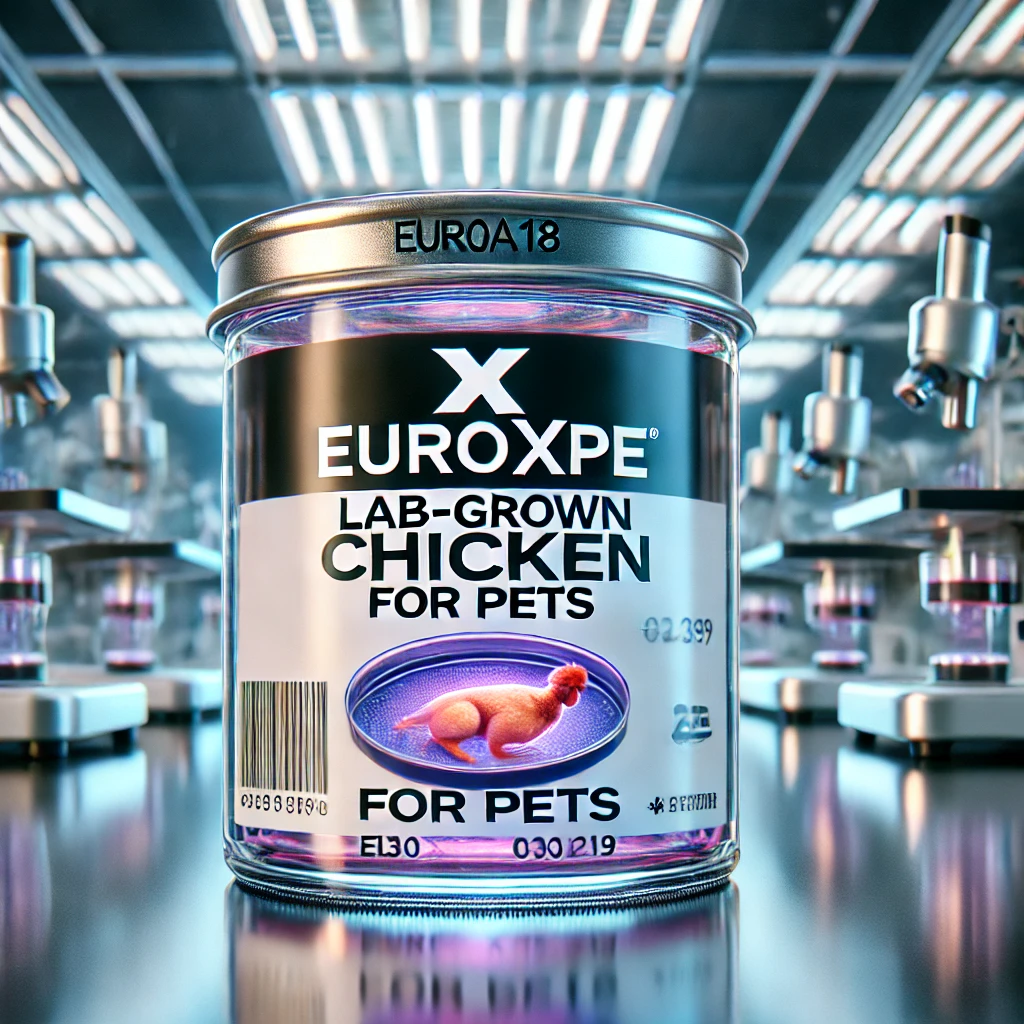The European Union’s potato production has witnessed a dramatic decrease of nearly 37% over the past two decades, according to a recent Eurostat report. This significant decline has been attributed to various factors, including climate change, stricter EU regulations on pesticides, and evolving consumer habits. The decrease in production has had profound implications for the potato industry, with major producers like Germany, France, and the Netherlands experiencing substantial impacts.
Potatoes have long been a staple in European cuisine, from Belgian frites to Spanish tortilla de patata and Italian gnocchi. However, the Eurostat data released on 8 August 2023 reveals a stark contrast in production levels compared to two decades ago. In 2023, the EU harvested 48.3 million tonnes of potatoes, a modest increase from 47.5 million tonnes in 2022, a year plagued by severe drought. Despite this slight recovery, the production has dropped by a staggering 36.7% since 2000, translating to 27.9 million tonnes less than what was produced at the turn of the millennium.
Germany remains the largest producer of potatoes in the EU, contributing 24% of the total output in 2023. France and the Netherlands follow, with 18% and 13.4% respectively. Interestingly, Romania and Poland, while not leading in overall production, have the most significant number of potato farms, although these tend to be small and economically less impactful. The decline in production across these key players signals a broader issue within the EU’s agricultural sector, driven by a combination of environmental, regulatory, and economic challenges.
The climate crisis has played a pivotal role in this downward trend. Berta Redondo, Secretary General of Europatat, a Brussels-based lobby group for potato traders, highlighted the “radical changes in the European climate” as a critical factor. The severe drought of 2022, coupled with the excessive rainfall in Western Europe during the last autumn and spring, has wreaked havoc on potato yields. These erratic weather patterns have made it increasingly difficult for farmers to maintain consistent production levels, contributing significantly to the overall decline.
Another substantial factor affecting EU potato production is the tightening of regulations on pesticides. Over recent years, the EU has implemented stricter rules on the use of certain chemicals critical for pest control in potato farming. For instance, in 2019, the European Commission decided not to renew the approval for ethoprophos, a substance previously used against wireworms in potato crops, due to its toxicity concerns. Similarly, in 2018, the EU banned all outdoor uses of three neonicotinoids—imidacloprid, thiamethoxam, and clothianidin—citing their detrimental effects on pollinators. These regulatory changes have left farmers with fewer tools to combat pests and diseases, further exacerbating the challenges faced by the sector.
Compounding these issues are the rising production costs, particularly for fuel and energy, which have been significantly impacted by geopolitical factors, including Russia’s invasion of Ukraine. These increased costs have added further pressure on potato farmers, making the cultivation of this staple crop less economically viable. Redondo warned that these challenges might push farmers towards less risky crops, potentially leading to an even greater reduction in potato production in the future.
In addition to environmental and regulatory challenges, changing consumer preferences are also playing a role in the decline of potato production. According to Redondo, younger generations, particularly millennials, are increasingly cutting carbohydrates from their diets or opting for more “exotic” alternatives to traditional potatoes. This shift in dietary habits poses a new challenge for the potato industry, which has traditionally relied on the popularity of potatoes as a versatile and affordable food source.
In response, Europatat launched a €3.4 million promotional campaign in 2020, co-financed by the European Commission, targeting millennials in Belgium, France, and Ireland. This campaign, running until 2025, aims to rebrand potatoes as a modern, versatile ingredient, suitable for a wide range of contemporary dishes. With over 300 recipes and endorsements from influencers and celebrities, the initiative seeks to reverse the trend by reconnecting younger consumers with this traditional European staple.
The decline in EU potato production reflects a complex interplay of climate change, regulatory challenges, and evolving consumer preferences. As the industry faces these multifaceted issues, the future of potato farming in Europe remains uncertain. Efforts to adapt to these changes, whether through regulatory adjustments, innovation in farming practices, or targeted marketing campaigns, will be crucial in sustaining this vital sector of the European agricultural economy.

